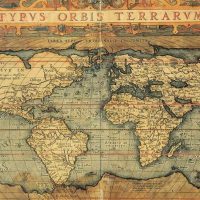Category: History Essay Examples
See our collection of history essay examples. These example essays are to help you understanding how to write a history essay. History is a fascinating puzzle with both personal and cultural significance. The past informs our lives, ideas, and expectations. Historians study the past to figure out what happened and how specific events and cultural developments affected individuals and societies. Also, see our list of history essay topics to find the one that interests you.
King Philip II, expansionist ruler of Macedonia from 359 to 336 b.c.e., paved the way for his son Alexander the Great’s conquests. Philip was born in Pella in 382 b.c.e., the third son of King Amyntas III and his first wife, Queen Eurydice. After Amyntas died in 370 …
The first-century c.e. Jewish author and philosopher Philo of Alexandria is an important figure for both Hellenistic Judaism and early Christianity. He was born around 20 b.c.e. in Alexandria into one of the wealthiest and most distinguished Jewish families. Alexandria had a thriving Jewish community and was known …
Beginning with the Greek Dark Ages, Phoinikoi was the word used by Greeks to refer to the urban populations of the eastern Mediterranean seacoast. Phoenician cities from coastal Syria and Lebanon to the northern shore of Palestine, such as Ras al-Bassit (Poseidon), Tell Sukas (Sianu), Arwad (Arados), Tell …
From time immemorial religious people have believed that certain places are more sacred than other places. They have made it a practice to visit these places, believing that they can obtain special advantages in so doing. The journey to such a destination is called a pilgrimage. Archaeological remains …
Platonism is the philosophy or worldview of Plato, a Greek scholar who believed in a world beyond the everyday world, a world in which things were more real and vital than the world that one typically perceives with one’s senses. Plato, who lived 427–347 b.c.e., was a citizen …
The polis was a city-state in ancient Greece and was a significant feature of Greek civilization. Most of Greece was controlled by a polis, and they were organized with sufficient efficiency for the central city to administer large tracts of land. The surrounding areas were dominated by agricultural …
Pompeii and Herculaneum were two Roman towns destroyed by the eruption of Mount Vesuvius in 79 c.e. A community had existed at Pompeii, near present-day Naples, in proximity of the Sarnus River and the Bay of Naples since the eighth century b.c.e. Initially the Etruscans, then the Samnites, …
The Roman statesman and general Gnaeus Pompeius Magnus was given the title “the Great” by his troops in Africa in 81 b.c.e. and later by the Roman authorities. Initially an ally of Julius Caesar, Pompey opposed Caesar’s march on Rome in 49 b.c.e., resulting in the civil war …
Pontius Pilate was a Roman prefect who governed Judaea from 26 to 37 c.e. Pilate rose to prominence in history when in about 30 c.e. he condemned Jesus (Christ) of Nazareth to be crucified. Judaean prefects had command over five to six auxiliary military cohorts (each consisting of …
The pre-Socratics were Greek philosophers who speculated about the nature of the world for more than 150 years before Socrates flourished. Their philosophizing about nature sought answers to questions that were metaphysical and scientific, although these disciples were not then separated. The metaphysical questions asked by the pre-Socratics …
Both Jewish and Christian traditions regard the Bible as a divinely inspired book in and through which God reveals to human beings what they could not know of themselves. This revelation came chiefly through the prophets, privileged men and women to whom and through whom God spoke. Because …
The book of Psalms Essay is actually a collection of five books, each of which ends with a note of praise. It is found in the jewish bible or Old Testament. Known as “the book of praises” in Jewish tradition, almost every composition in it is suffused with …
The Pseudepigrapha refer to Jewish writings that are not included in the Jewish scriptures. These writings are often promulgated under the assumed pen names of famous biblical heroes. They were composed before or at the time of the New Testament, so they help to explain the background to …
One of Alexander the Great’s conquests in the eastern Mediterranean was Egypt. On Alexander’s death his empire broke up for lack of a suitable designated successor. Ptolemy (367–283 b.c.e.), a trusted general under Alexander, had counseled that the empire be divided into a series of satrapies, each under …
The pyramids on the Giza Plateau of Egypt were erected as royal tombs in the 26th century b.c.e. The Great Pyramid, largest of three major structures, housed the remains of the pharaoh Khufu (Cheops), while the other two were built for Khufu’s son Khafra and grandson Menkaure. One …
Pyrrhus (the Greek word for “fiery red”) was the pugilistic king of the Hellenistic kingdom of Epirus from 306 to 301 b.c.e. and again from 297 to 272 b.c.e. His costly but successful military tactics against Macedonia and Rome gave rise to the phrase Pyrrhic victory. Primary sources …
Pythagoras was a Greek thinker and contributor to preSocratic philosophy who was born on the isle of Samos. He fled tyranny to establish a school in southern Italy at Croton, which contained both scientific and mystical streams of thought. Pythagoras achieved influence at Croton for a period, but …
The Qin state was founded in 897 b.c.e. during the Zhou (Chou) dynasty; it became an important state in contention for leadership in unifying China the in mid-fourth century b.c.e. The Qin lasted only 15 years as a national dynasty between 221 and 206 b.c.e. but left a …
The Dead Sea Scrolls have rightly been called the most important manuscript discovery of the 20th century. In 1946 Bedouin shepherds were grazing their flocks near a place called Wadi Qumran. (Wadi is the Arabic word for “dry river bed.”) One of these shepherds, named Jum‘a Muhammad Khalil, …
The Ramayana (Romance of Rama) is the shorter of two great epic poems from ancient India. It was originally written in Sanskrit in the tradition of the Vedas as an account of the lives of the gods. The poem tells a story of court intrigue, romance, and the …


